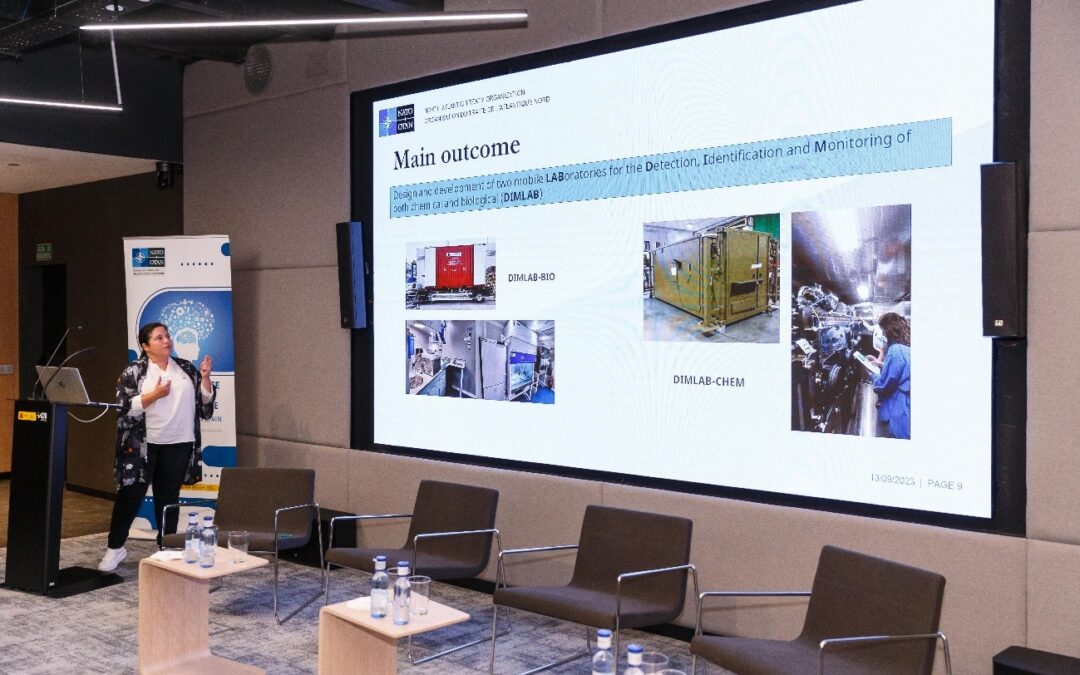NATO Science for Peace and Security Programme (SPS) promotes dialogue and practical cooperation between NATO member states and partner countries through scientific research, technological innovation, and knowledge sharing.
On 13 September, the CDTI hosted an information day organized by NATO’s Science for Peace and Security Programme (SPS). During the second session, Beatriz Ambrosio Soblechero, PhD in Biology and NATO Project Director (NPD) in the DIMLAB project, made a presentation focused on showing the achievement of the objectives of the DIMLAB project and the relationships created between Spain, Morocco and Tunisia during the design and development of two mobile laboratories for the detection, identification and monitoring of biological and chemical agents (DIMLAB).
Finally, she highlighted the successes achieved, as well as the impact of this project and the next steps to be taken to give continuity to these projects.
The SPS programme enhances practical, results-oriented cooperation and adapts to the changing security environment to support NATO’s strategic objectives and priorities in its relations with partner countries.
This programme involves scientists, experts and government officials from NATO member and partner countries, contributing to NATO’s effort to project stability and build capacity in partner countries by prioritising security-related activities such as counter-terrorism, cyber-defence, advanced technologies, energy and environmental security, and threats posed by chemical, biological, radiological, nuclear and explosive hazards.
Over the past five years, the Programme has initiated more than 200 collaborative activities between NATO member states and partner countries.
Read more about: NATO – Science for Peace and Security Programme

